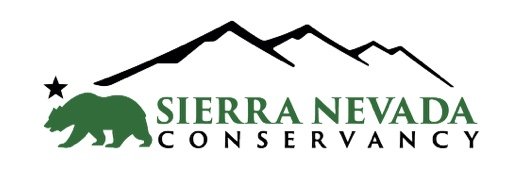Environmental Protection Program
CAL FIRE's mission includes protecting California's resources-- not only from natural disaster, but from the direct and indirect impacts that may arise from the Department's actions. CAL FIRE's own activities, as well as those it approves, permits, funds or otherwise facilitates, may impact the environment, and are therefore subject to environmental review. The Environmental Protection Program strives to provide protection to the resources of the state through its sub-program areas. For comments or concerns please contact SacramentoPublicComment@fire.ca.gov.
The Environmental Protection Program strives to ensure that:
- State and Federal environmental laws are observed
- Forested landscapes are managed wisely
- The state's varied biological resources are enhanced
- Water quality is protected and maintained
- The state's archaeological, historical and tribal cultural resources are protected
- California's wildlands are managed to minimize and offset climate change effects
- The state's woody biomass resource is efficiently utilized
When CAL FIRE decides to approve, permit, fund, or carry out a project that may effect the environment, its decision is subject to disclosure and review under the California Environmental Quality Act (CEQA). Certain Department activities may be exempt from CEQA due to their emergency nature (e.g., firefighting, flood response) or their minimal likelihood for causing significant impacts (statutory or categorical exemptions). Other actions may require the Department's development and approval of environmental documents, including Environmental Impact Reports.
In addition to CEQA, CAL FIRE is subject to many other State and Federal laws and regulations - federal and State Endangered Species Acts, Clean Water Act, Migratory Bird Treaty Act - and must obtain various permits to carryout certain activities. In conducting its environmental analysis under CEQA, CAL FIRE consults with other agencies, carries out surveys and studies, seeks the opinion of experts and solicits public input. CAL FIRE strives to avoid environmental impacts through modifications in the project such that sensitive resources are protected. Where necessary, CAL FIRE adopts additional mitigations to ensure that impacts to all resources are, individually and cumulatively, less than significant.
CAL FIRE encourages the public's participation in the CEQA process and welcomes input at hearings or through the submittal of written comments.
The following is a summary of CAL FIRE approvals that are subject to environmental review under CEQA:
Fire Protection:
- Fire Suppression Chemicals (retardants, gels)
- Fuels Management Projects
- Construction and Repair of Facilities
- Building Demolitions, Transfers, Relocations, Conversion
- Land Acquisitions and Leasing
State Forest Projects
- Demonstration and Research
- Recreation (trails, campgrounds, special events)
- New and Updated Forest Management Plans
- Road Maintenance and Repair
Fire Training Exercises:
- Heavy Fire Equipment (Dozer) Operating Training
- Training Burns (wildland or structure)
- Conservation Crew Hand Line Construction
- Tree Faller Training
Urban Forestry:
- Tree Planting
- Grants
Forest Pest Management:
- Pesticide Applications
- Forest Pest Research
The Department of Forestry and Fire Protection (CAL FIRE) posts all final California Environmental Quality Act (CEQA) documents to their webpage upon signature. CEQA document types that may be found include Notices of Exemption (NOE), Negative Declarations (ND), Mitigated Negative Declarations (MND), Environmental Impact Statements or Impact Reports (EIR or EIS), Notices of Determination (NOD) or Notices of Completion (NOC). A dynamic Airtable serves to report annually, in December for the previous fiscal year, on hazardous fuel reduction and vegetation management projects where CAL FIRE was designated as the Lead or Responsible Agency. In the Airtable are projects funded or conducted by the Department, including, but not limited to, projects funded under the Department’s Forest Health Program, California Forest Improvement Program, and Wildfire Prevention Grants Program, as well as funding for CAL FIRE unit wildfire prevention projects and prescribed fire and fuel crews. Access to the project descriptions, mitigation, maintenance, and monitoring requirements are available from this Airtable.
There are a diverse range of project types, goals, and timelines, especially with CAL FIRE grant funded projects. For that reason, it is not uncommon for project activities to overlap multiple fiscal years. For this data, the FY in which it is reported is the signature date of the associated CEQA (or CEQA equivalent) environmental document.
Due to accessibility publishing requirements, the Chaparral Management Program (CMP) and California Forest Improvement Program (CFIP) Environmental Impact Reports (EIR) are not currently publicly posted. The Department is working on updating those documents. In the meantime, if you would like to obtain the original scanned pdf of either, please request via Sacramento Public Comment email provided below.
By posting these CEQA documents and associated reporting details in the Airtable, the Department is complying with Public Resource Code (PRC) § 4137(h) and (j) and other reporting and publishing requirements. For questions about posted documents or data, please email SacramentoPublicComment@fire.ca.gov
PRC § 4799.05 (d)(4)(A) allows for the National Environmental Quality Act (NEQA) environmental analyses be utilized when they are adequately scoped for in place of the California Environmental Quality Act for grant or Good Neighbor Authority projects on federal land where State funds are to be utilized. Per PRC 4799.05 (d)(4)(B) when other State Agencies utilize this process, they shall send the relevant information to CALFIRE. For inquiries or to submit information please email the Prescribed Fire and Environmental Compliance team.
Below are links to the Respective State Agencies Website that have submitted with the 4799.05 (d)(4)(A) information to CALFIRE.
P.O. Box 944246 Sacramento, California 94244
SacramentoPublicComment@fire.ca.gov
